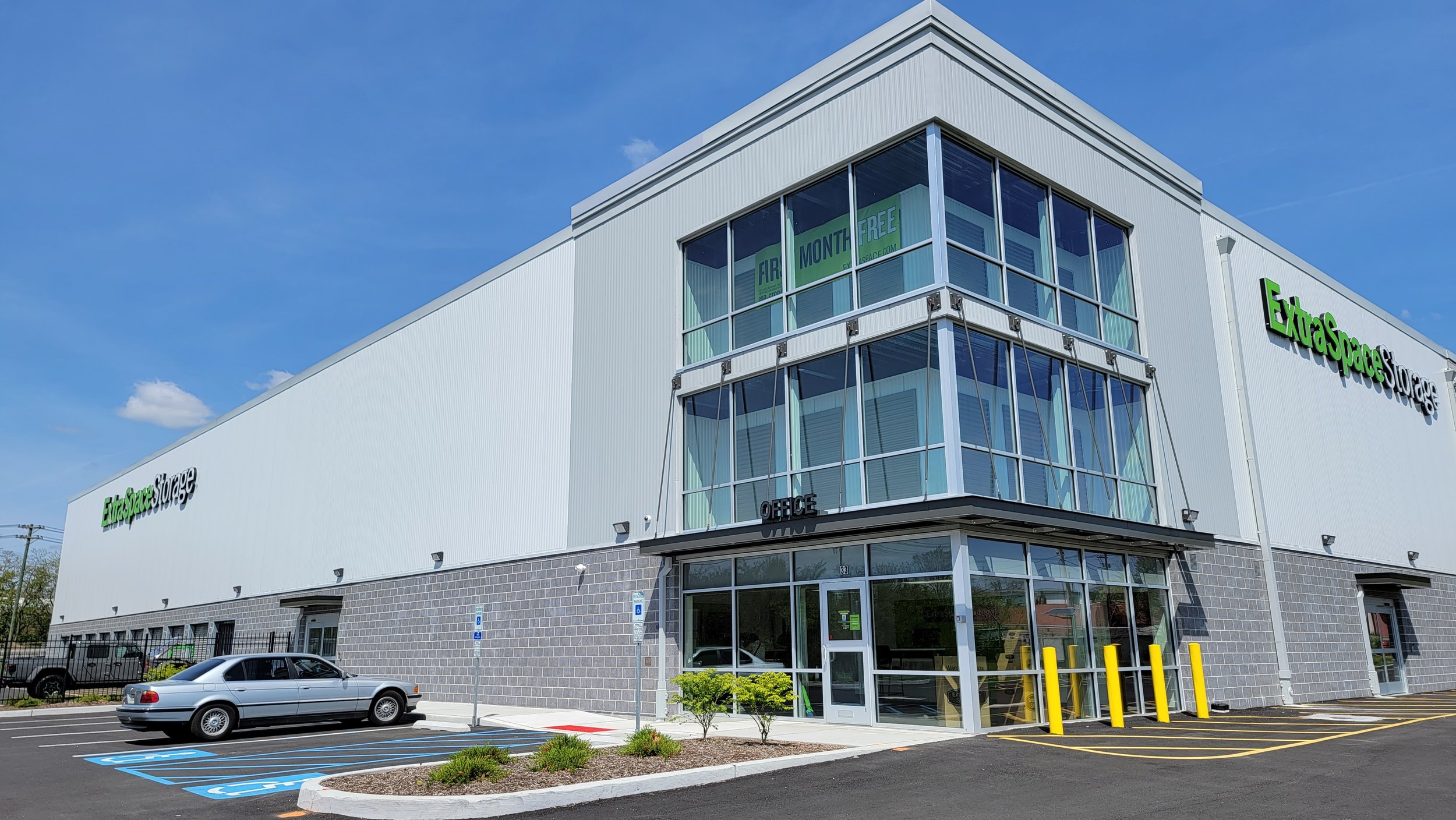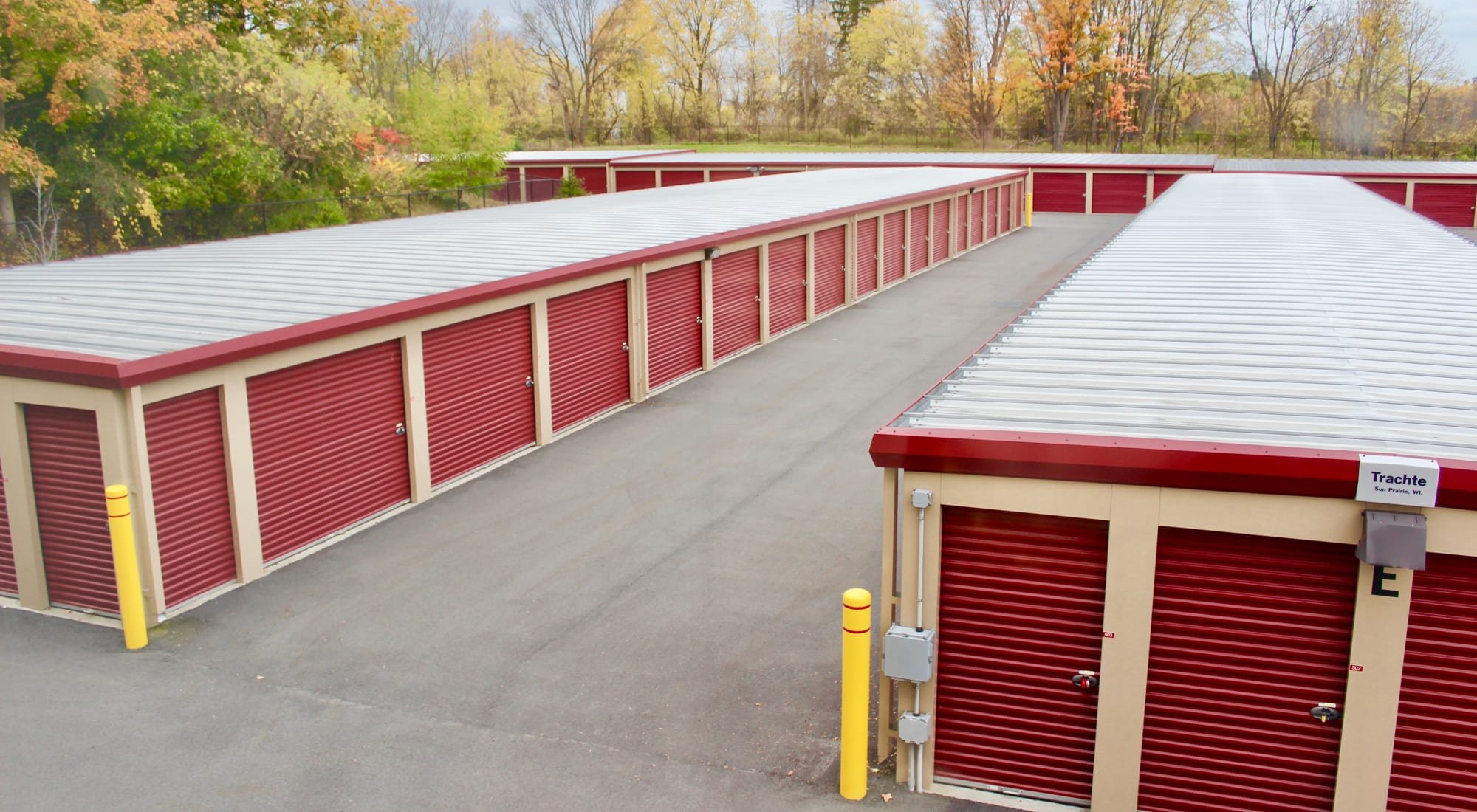How to Invest in Self-Storage
Introduction to Invest in Self Storage Facility
The self-storage industry has emerged as a lucrative investment opportunity, providing individuals and businesses with a secure and convenient space to store their belongings. Many real estate investors, developers, and real estate investment trusts (REITs) are now looking to own storage facility as part of their portfolio.
If you're considering investing in self-storage facilities, whether through building a self-storage facility to acquiring an existing self-storage facility, this comprehensive guide will equip you with the knowledge and insights needed to make informed real estate investing decisions in a self-storage business.
From understanding the self-storage market potential to assessing investment strategies, we'll explore everything you need to know about investing in self-storage for optimal returns.
The Lucrative Business of Self-Storage Investing
Exploring the Growth Potential
The self-storage industry has experienced rapid growth and has proven to be a profitable business for investors.
In this section, we'll highlight the reasons behind the surge in demand to invest in self-storage facilities. Factors such as urbanization, downsizing, and the rise of e-commerce have contributed to the increased need for storage solutions.
We'll provide statistical data and market trends that showcase the profitability of self-storage investments.
Advantages of Investing in Self-Storage facility
Investing in self-storage offers several unique advantages that make it an attractive investment option.
We'll discuss these advantages, including low operational costs, minimal maintenance requirements, and steady cash flow.
Additionally, we'll emphasize the recession-resistant nature of the self-storage industry, highlighting its ability to withstand economic downturns.
Lastly, we'll explore the potential for long-term appreciation and wealth creation through self-storage investments.
The self-storage industry has emerged as a lucrative investment opportunity, attracting investors from various backgrounds.
The demand for self-storage facilities has experienced rapid growth in recent years, making it an attractive venture for those seeking profitable business opportunities.
Investing in self-storage presents numerous advantages that set it apart as an attractive option for investors.
These advantages encompass various aspects, including financial stability, low operational costs, and long-term wealth creation potential passive investors.
Let's delve deeper into the factors driving this growth and explore why investing in self-storage can be a lucrative endeavor.
Urbanization
One of the primary drivers of the self-storage industry's growth is urbanization. As more people choose to live in urban areas, they often face space constraints in their homes.
Apartments and houses in cities often have limited storage space, prompting individuals and families to seek external storage solutions.
This urban lifestyle shift has created a significant demand for self-storage units, providing a valuable market opportunity for investors.
Downsizing
Downsizing has become a prevalent trend in recent years. Many individuals and families are choosing to downsize their living spaces for various reasons, such as reducing costs, simplifying their lifestyles, or embracing minimalism.
However, downsizing often means sacrificing storage space. Consequently, individuals require alternative storage options to accommodate their belongings, leading to an increased need for self-storage facilities.
Ecommerce
The rise of e-commerce has also played a significant role in driving the demand for self-storage. With the exponential growth of online shopping, businesses are grappling with the challenge of storing inventory.
Self-storage facilities provide an ideal solution for e-commerce businesses that require additional space to house their products.
By investing in self-storage, investors can tap into this burgeoning market and cater their own facility to the storage needs of online retailers.
The profitability of the self-storage industry is evident in its financial performance. Industry reports indicate consistent growth and impressive financial returns.
Low operational costs
One of the primary advantages of investing in self-storage is the relatively low operational costs associated with these facilities.
Compared to other real estate investments, self-storage units require minimal ongoing maintenance and management. Unlike residential properties that may require frequent repairs or commercial buildings with complex tenant needs, self-storage facilities are relatively straightforward to operate.
This translates into reduced expenses and higher profit margins for investors.
Steady cash flow
Another advantage is the steady cash flow that self-storage investments can generate. Storage units tend to have higher occupancy rates compared to other real estate sectors, ensuring a consistent stream of rental income.
People often rent storage units for extended periods, resulting in reliable cash flow for investors.
This stability is particularly appealing for individuals seeking a reliable and consistent passive income and stream.
The demand for self-storage has resulted in high occupancy rates, ensuring a steady stream of rental income for investors.
Moreover, self-storage facilities often have low operating costs compared to other real estate investments. The maintenance requirements are minimal, resulting in higher profit margins for investors.
This combination of low overhead, high occupancy rates and low operating costs contributes to the industry's profitability and attractiveness for investors.
Another advantage of investing in self-storage is the recession-resistant nature of the industry.
During economic downturns, people still require storage space for various reasons. In fact, economic uncertainties can even lead to increased demand for self-storage, as individuals and businesses may downsize or need to store belongings during transitional periods.
This resilience makes self-storage investments a reliable option for those seeking stability and long-term returns through passive investment.
Self-storage facilities have the potential for long-term appreciation and wealth creation.
As the demand for storage space continues to grow, the value of self-storage facilities may increase over time.
Investors who enter the market at the right time and in the right locations can benefit from the appreciation of their properties, generating substantial returns on their initial investment.
This potential for wealth creation further enhances the appeal of investing in a storage facility.
The self-storage industry offers a lucrative business opportunity for investors. The surge in demand driven by urbanization, downsizing, and the rise of e-commerce has created a robust market for self-storage facilities.
With high occupancy rates, low operating costs, and recession-resistant characteristics, investing in self-storage can yield consistent returns.
Moreover, the potential for long-term appreciation and wealth creation makes self-storage investments an attractive option for those seeking profitable ventures.
By capitalizing on the growth potential of the self-storage industry, investors can position themselves for success in this thriving sector.
Getting Started with Self-Storage Investments
Understanding Self-Storage Basics
To make informed investment decisions, it's crucial to understand the fundamentals of self-storage.
We'll define self-storage and explain the different types of storage units available, such as indoor, outdoor, and climate-controlled units. We'll also discuss the key features and amenities that attract customers to self-storage facilities.
Furthermore, we'll explore the various target markets for self-storage, including residential and commercial customers.
Before diving into the world of self-storage investments, it's crucial to grasp the fundamentals of this industry. By understanding the basics, you can make informed investment decisions and set yourself up for success.
Firstly, let's define self-storage. Self-storage refers to the rental of storage units to individuals or businesses to store their belongings. These storage units come in various types, catering to different needs and preferences.
Indoor storage units
One common type is the indoor storage unit. These units are typically located within a building, providing added protection against weather conditions. Indoor units are popular among customers who want to store valuable or delicate items that require a controlled environment.
Typically, this type of units can be found in a multi-story self-storage building or a retrofit/conversions storage facility.
Outdoor storage units
On the other hand, outdoor storage units are accessible from the outside and are suitable for storing vehicles, large equipment, or items that don't require climate control. These units are often preferred by customers who need easy access to their belongings or have oversized items to store.
This type of storage unit is typically used for single-story self-storage units and boat and RV storage units.
Climate controlled storage units
Another type of storage unit is the climate-controlled unit. These units maintain a controlled temperature and humidity level, ensuring the safe storage of sensitive items such as artwork, documents, or antiques. Climate-controlled units provide an added layer of protection against extreme temperature fluctuations and moisture damage.
To attract customers, a storage facility will often offer key features and amenities. These can include 24/7 security surveillance, gated access, on-site management, and well-maintained facilities.
Additionally, some facilities may provide extra services like package acceptance, truck rental, or moving supplies.
Understanding the features and amenities of self-storage business that customers value will help you design and manage a successful self-storage investment.
It's important to consider the target markets for self-storage. Residential customers often seek storage units during moves, renovations, or when downsizing their living spaces. They value convenience, security, and accessibility.
Commercial customers, on the other hand, may require storage for excess inventory, documents, or equipment. They prioritize factors like location, scalability, and customized storage solutions.
By understanding the needs and preferences of these target markets, you can tailor your self-storage investment to attract and retain customers effectively.
Conducting Market Research
Thorough market research is essential for identifying viable investment opportunities in the self-storage industry.
In this section, we'll provide guidelines for conducting market research. We'll discuss how to assess market demand, analyze competition, and evaluate location feasibility.
We'll explore the tools and resources available for conducting comprehensive market research, enabling you to make informed investment decisions.
Thorough market research is a crucial step in identifying viable investment opportunities in the self-storage industry. By conducting comprehensive research, you can gain insights into the self-storage market, demand, competition, and location feasibility.
Market demand
Start by assessing the market demand in your target area. Look for areas with a growing population, strong economic activity, or unique factors that drive storage needs.
Analyze demographic data, housing trends, and local developments to understand the potential customer base.
This information will help you gauge the demand for self-storage in your chosen market.
Competition
Next, analyze the competition. Research existing self-storage facilities in the area and evaluate their offerings, pricing, occupancy rates, and customer reviews.
This analysis will give you an understanding of the competitive landscape and help you identify gaps or opportunities for differentiation.
Consider factors like location, accessibility,, security systems, and amenities to determine how your self-storage investment can stand out from the competition.
Feasibility
Location feasibility is another crucial aspect to consider. Look for areas with good accessibility, visibility, and proximity to residential or commercial areas.
Consider factors such as traffic patterns, nearby businesses, and population density. A prime location can significantly impact the success and profitability of your self-storage investment.
Utilize various tools and resources available for conducting market research. Online platforms, industry reports, and local market data can provide valuable insights into market trends, rental rates, and customer preferences.
Consider engaging with professionals or consultants who specialize in the self-storage industry. Their expertise and experience can offer valuable guidance throughout your research process.
Financial Considerations
Investing in self-storage involves various financial considerations. We'll discuss the upfront costs associated with self-storage investments, including property acquisition, development, and operational expenses.
We'll also explain the different financing options available and their respective pros and cons. Furthermore, we'll provide insights on determining rental rates, occupancy levels, and projected returns on investment, enabling you to develop a solid financial plan.
Investing in self-storage involves various financial considerations that should not be overlooked. Understanding the financial aspects will help you develop a solid investment plan and set realistic expectations for returns on your investment.
Assessing upfront costs
Start by assessing the upfront costs associated with real estate investing and self-storage investments. This includes property acquisition, development or renovation expenses, legal fees, and marketing costs.
Be sure to conduct thorough due diligence when evaluating potential properties to ensure you make informed decisions about the acquisition or development process.
Financing options
Consider the financing options available to you. This can include traditional bank loans, private funding, or partnerships.
Each option has its advantages and considerations, so carefully evaluate the terms, interest rates, repayment schedules, and potential impact on your overall investment strategy.
Rental rates
Determining rental rates is a crucial aspect of self-storage investment. Research the rental rates charged by competitors in the area and assess the demand-supply dynamics.
Consider factors such as unit size, location, amenities, and market conditions when setting your rental rates. Striking the right balance between attracting customers and maximizing profitability is key.
Forecast occupancy levels
Forecasting occupancy levels and projected returns on investment is essential for financial planning. Evaluate historical occupancy rates in the area, analyze market trends, and consider factors such as seasonality or economic fluctuations.
Develop realistic projections based on these risk factors, to estimate your potential cash flow and returns.
It's important to factor in ongoing operational expenses such as property maintenance, insurance, utilities, marketing, and staff salaries.
These costs will impact your profitability and should be considered when evaluating the financial feasibility of your self-storage investment.
How to invest in self-storage facility
Getting started with self-storage investing requires a solid understanding of the industry's basics, conducting thorough market research, and considering the financial aspects involved.
By understanding the different types of self-storage units, target markets, and conducting comprehensive market research, you can identify viable investment opportunities.
Considering the upfront costs, financing options, rental rates, and projected returns will help you develop a robust financial self-storage investing plan.
Armed with this knowledge, you can embark on your self-storage investment journey with confidence and increase your chances of success in this lucrative industry.






